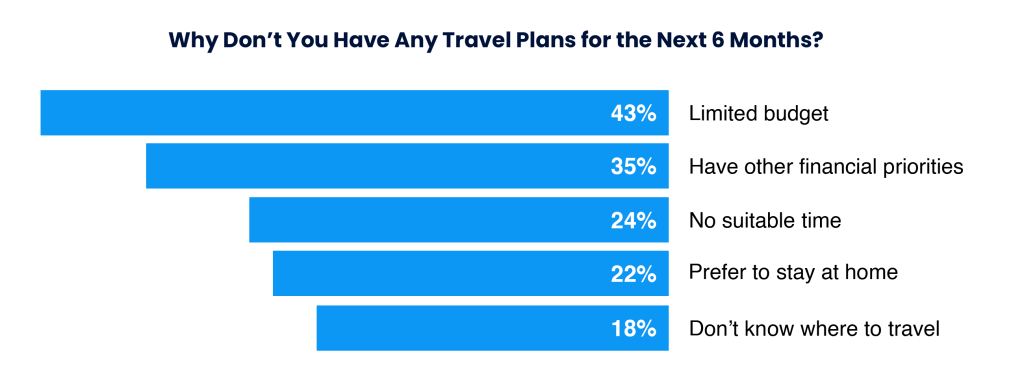Catching the Year End Festive Wave Demands in Indonesia: Why Brands Must Not Wait Until December
Written by : Yosephine Devina Tiurma
Understanding the psychology of escape, connection, tradition, and value that shapes consumer spending.
December and early January in Indonesia feels distinctly different. Malls buzzing, decorations sparkle everywhere, holiday spots brim with tourists, discounts and promotions flooding, and calendars filled with travel, dinner, and gathering plans. The overlap of Christmas, New Year, and the school holiday creates another major sales peak after Ramadhan and Eid al-Fitr—further amplified by the much-anticipated Harbolnas (Hari Belanja Online Nasional), which offers deep discounts and fuels year-end shopping sprees.
However, this surge is more than sales and promotions, it reflects a psychological high point where consumers crave rest, reconnection, tradition, and celebration. Even in 2025, when the economy slows, inflation increases food prices, and consumer confidence slips, people will not abandon celebration. Instead, they will celebrate more selectively by planning earlier, spending more carefully, or demanding stronger value.
Escape and Rest: The Reward at Year’s End
By the time December rolls around, work is winding down, school is on break, and the idea of “healing”, a word which in recent years have been used by a lot of Indonesians, takes centre stage. This period is a perfect moment to rest and renew energy, fuelling demand for travel, leisure, and wellness.
In 2025, the behaviour may change. Millennials and Gen Z have strong reasons related to financial constraints that may prevent them from going on vacation in the future, along with other financial priorities.

Indonesia Travel Preferences – 2024 Jakpat Survey Report.
However, the desire remains the same. Alternatively, trips may be shorter, closer, or replaced with staycations. They also indulge in small self-rewards—from festive snack boxes and limited-edition beauty packs to spa days and wellness treats, making rest something attainable and rewarding. Recent data confirms this: 58% of Indonesians say they will pay extra for “special moments,” and 64% now prefer at-home experiences like comfort food or pampering rituals (NielsenIQ, 2024). Meanwhile, beauty, fashion, and F&B categories performed strongly during December’s Mega Sales events, underscoring how indulgence still finds a place even in cautious budgets.
Cultural Expectations and Traditions: Anchors of Celebration
Christmas and New Year rituals in Indonesia, such as decorating homes, festive meals, new Christmas or New Year apparels and gift exchanges, carry both emotional weight and social expectations. In Indonesia’s collectivist culture, they are not just preferences but also perceived duties, seen as essential for affirming identity and maintaining traditions within families and communities.
Even under economic strain, people will adapt rather than abandon traditions. NielsenIQ (2024) predicted that in 2025, food’s share of household spend will rise, with 38% switching to cheaper products and 36% buying more discounted items rather than cutting festive purchases. TGM Research (2024) reported that over 60% of Indonesians buy food, beverages, and apparel as gifts, while more than half still spend on clothing or small presents, often beginning as early as December.
Therefore, in 2025, the trend will be scaling down instead of opting out. Smaller hampers, discounted apparel, and affordable yet meaningful gifts will allow households to keep traditions intact despite financial concerns. This is where Indonesia’s dual mindset emerges: pragmatic when it comes to duty-bound rituals, but indulgent when it comes to rewarding themselves.
Social Connection: Togetherness as Non-Negotiable
The year-end holiday is also about people coming together and reconnecting with family, friends, and communities, near or far. It is about being present—whether through hometown trips, church gatherings, neighbourhood events, or New Year celebrations.
This behaviour is driven less by duty and more by desire to belong and feel close. While rituals anchor the season, it is the pursuit of togetherness, spontaneous, joyful, and heartfelt, that gives the holiday its emotional pull. It shows that Indonesians do not just want to buy things but also ways to share moments.
This desire to connect goes beyond physical travel. Households spend on digital and social enablers, including bigger data packages, upgraded devices, streaming subscriptions, or host smaller gatherings when travel is not possible. TGM Research (2024) reinforces this with evidence of gifting and shared consumption as key connectors.
The Bottom Line
The year-end holiday in Indonesia is more than a commercial period—it is a season of healing, duty, and desire for connection. Even in challenging economic times, Indonesians will adapt to be able to rest, uphold traditions, and share moments with loved ones. This dual pattern defines how Indonesians celebrate. They are not just buying products; they are buying rest, rituals, and togetherness.
For brands, the psychology of year-end holidays remains powerful, but the “how” of spending is shifting. The lesson is clear: start early, stay visible, and align with the above psychological drivers. Those that combine festive excitement with empathy for value-conscious consumers can secure not just sales, but lasting relevance in how Indonesians choose to close their year, which is with meaning, celebration, and connection.
Search Keywords
Latest Posts

The SUCCESS Campaign in TMN: Creating Impact Beyond Visibility
December 11, 2025

Brand Campaigns That Stood Out in 2025
December 11, 2025

